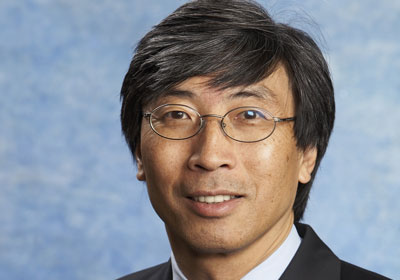 Waterloo, Ontario-based BlackBerry (formerly known as Research In Motion) announced this week an investment in Dr. Patrick Soon-Shiong's digital health rollup NantHealth, which boasts that about 250 hospitals are now using its cloud-based, clinical decision support platform. The dollar amount of the investment was not disclosed.
Waterloo, Ontario-based BlackBerry (formerly known as Research In Motion) announced this week an investment in Dr. Patrick Soon-Shiong's digital health rollup NantHealth, which boasts that about 250 hospitals are now using its cloud-based, clinical decision support platform. The dollar amount of the investment was not disclosed.
BlackBerry and NantHealth haven't yet finalized the specific details of their collaboration, but the companies noted opportunities to leverage BlackBerry's QNX operating system for connect medical devices; to offer BBM Protected to healthcare providers as a secure messaging service; to integrate NantHealth's clinical operating system platform with BlackBerry's offerings; and more.
“This investment and planned collaboration aligns with the reliability, security and versatility of BlackBerry’s end-to-end solutions – from the embedded QNX operating system powering complex medical devices, to secure cloud-based networks, to instantaneous information sharing over BBM Protected,” BlackBerry CEO and Executive Chair, John Chen stated. “NantHealth is a proven innovator in developing leading platforms that allow medical professionals to share information and deliver care efficiently. BlackBerry’s capabilities align closely with NantHealth’s and this investment represents the type of forward-looking opportunities that are vital to our future.”
"The potential to integrate BlackBerry's secure mobile communications, along with the company’s QNX embedded technology, will put the power of a supercomputer in the palm of the caregiver's hand," NantHealth's Soon-Shiong stated. "Providing actionable information at the time of need will significantly improve the efficiency of healthcare and, more importantly, the efficacy of care for the patient.”
At HIMSS last year BlackBerry's Vice President for Global Sales Paul Lucier told MobiHealthNews that “healthcare’s an area we want to focus, whether it’s with tablet, smartphone, and also our software." Lucier pointed to healthcare as an important vertical for the once dominant mobile company's comeback.
In early 2013 NantHealth disclosed two rounds (a total of $31 million) in new funding, according to SEC documents. While the company did not comment on the funding details at the time, Verizon had announced an undisclosed amount of funding in NantHealth a few months prior. Verizon said the funds were intended to help it develop a secure fiber-optic, cloud-based data infrastructure to deliver multimedia healthcare information to mobile devices -- at the time the two companies were already collaborating on the Cancer Knowledge Action Network. Verizon Wireless also highlighted NantiD as one of its partners providing augmented reality technology for retail at CES 2013 earlier this month. Nant also offers a version of the technology to visually impaired or blind people.
NantHealth includes a number of Soon-Shiong's acquisitions over the years, like medication adherence offering Vitality GlowCaps and the home health technology provider Boston Life Labs. Based on a short series of NantCare promotional videos on YouTube, Boston Life Labs' suite of devices, which has since been rebranded NantLife Telehealth, still goes by their old device names, like the Hpod and Hcube. The NantCare videos focus on congestive heart failure (CHF) patients and point to a September 2012 launch in Europe. The NantLife Telehealth offering also includes an iOS and Android app.
In addition to the Verizon partnership, in 2012 NantHealth forged a partnership with Blue Shield of California to develop and launch an integrated advanced technology system for at Saint John's Health Center in Santa Monica, CA to establish a clinically-based "continuous learning center" (CLC) as part of a new accountable care organization (ACO).


















